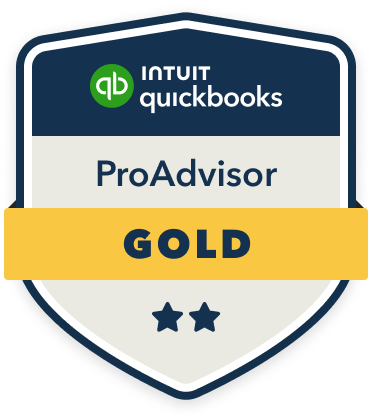Getting Started: Elevating Your VA to Bill Clerk in QuickBooks
Delegating bill entry and basic finance tasks can be transformative for small business owners weighed down by constant data entry. Elevating your virtual assistant (VA) to the role of Bill Clerk in QuickBooks is a practical, strategic move that brings hope and relief—freeing you from tedious, error-prone workflows and allowing you to focus on your business’s growth.
“Many business owners worry that they’re the only ones who can enter bills correctly, fearing mistakes will slip through and disrupt their finances. But with the right systems and training, delegation is not only possible—it’s essential for scaling.”
Why Delegate Bill Entry?
For many entrepreneurs, financial control feels synonymous with hands-on involvement. After all, who knows your vendors and expenses better than you? But this mindset traps you in repetitive tasks. The reality is, accurate bill entry doesn’t require your direct touch—it requires clear procedures, effective oversight, and the right technology.
A Billing Clerk manages tasks like:
– Verifying billing data and correcting errors
– Preparing and entering itemized statements and invoices
– Recording amounts due
– Maintaining vendor records
– Resolving discrepancies in accounting records
These responsibilities are process-driven and ideal for delegation, especially in a platform like QuickBooks that supports granular user roles and workflows.
Overcoming the “Only I Can Do This Right” Belief
This belief is common but ultimately limiting. Many owners fear that delegating bill entry means sacrificing accuracy or opening the door to costly mistakes. The truth is, most errors come from overwork, distractions, and a lack of systemization—not from delegation itself. When you empower a VA as your Bill Clerk and provide them with proper guidance, the results can be even more consistent than when you juggle everything yourself.
Step-by-Step: Elevating Your VA to Bill Clerk
- Define the Role and Permissions
In QuickBooks, you can assign the Bill Clerk role, which allows your VA to add bills, mark them as paid, and edit vendor details, but not approve or actually pay bills. This provides a crucial internal control—your VA handles the data entry, while you or a trusted manager retains approval authority.
- Document Your Bill Entry Process
Create a clear, step-by-step guide for your VA:
– Where to find bills (email, mail, vendor portals)
– How to enter them in QuickBooks (attach PDFs, input due dates, assign accounts)
– How to handle discrepancies or missing information
– Weekly or monthly review checklists
- Use Approval Workflows
QuickBooks allows you to set up workflows so that any bill entered by your VA is routed for approval before payment. This “maker-checker” process ensures accuracy and oversight without bottlenecking your own time.
- Train and Test
Invest a few hours in hands-on training. Start with a batch of older bills and walk your VA through the entry process. Review their work together, clarify any uncertainties, and provide feedback. Gradually transition to real-time bill processing as your VA demonstrates proficiency.
- Monitor, Don’t Micromanage
Use QuickBooks’ built-in reports to spot errors early. Set regular check-ins, especially in the first month, but resist the urge to redo their work. Focus on trends—are bills being entered on time, with correct amounts and proper attachments?
Emotional Payoff: Hope, Relief, and Control
Imagine the relief of seeing your bills entered daily, your payables dashboard always up-to-date, and your weekends free from catch-up data entry. When you delegate well, you gain confidence—not just in your VA, but in your own leadership. This shift restores hours to your week and mental energy to focus on strategic decisions, client relationships, and the parts of your business that truly require your expertise.
Expert Support: When to Involve a Fractional CFO or QuickBooks ProAdvisor
While training a VA to handle bill entry is straightforward, you’re not alone if you feel overwhelmed by the bigger picture. This is where the guidance of a Fractional CFO or a certified QuickBooks ProAdvisor can be invaluable.
- A Fractional CFO can help you design robust financial controls, set up approval workflows, and audit your bill entry processes. They ensure that delegation doesn’t introduce risk but actually strengthens your financial operations.
- A QuickBooks ProAdvisor can configure user roles, permissions, and workflows tailored to your business. They can also train your VA directly, bridging any technical gaps and ensuring best practices from day one.
Both types of professionals bring peace of mind—helping you delegate with confidence, knowing your finances are handled accurately and securely.
Addressing Common Concerns
Business owners often ask:
– How do I ensure sensitive information stays protected?
QuickBooks lets you set permissions so your VA can’t access bank accounts or run payroll—just bills and vendors.
– What if my VA makes a mistake?
With approval workflows, no bill is paid without your sign-off. You can always review entries before taking further action.
– Is this scalable as I grow?
Absolutely. As your needs expand, you can add more sophisticated workflows, approval tiers, and reporting—without redoing your entire system.
Getting Started
- Evaluate your current bill entry workload.
- Identify a trustworthy VA with attention to detail and basic accounting knowledge.
- Set up their Bill Clerk permissions in QuickBooks.
- Document your processes and provide initial training.
- Consult with a Fractional CFO or QuickBooks ProAdvisor for setup and oversight.
Final Thought
Letting go of bill entry is not about losing control—it’s about regaining your time, focus, and energy. By elevating your VA to the role of Bill Clerk, you’re building a more resilient, scalable business—one where your attention is spent on growth, not data entry.
By investing in professional financial guidance, you’re not just preparing for a sale. You’re creating peace of mind, stability, and options for yourself and those who matter most.
Don’t wait for “someday.” Start building your sellable business today.





